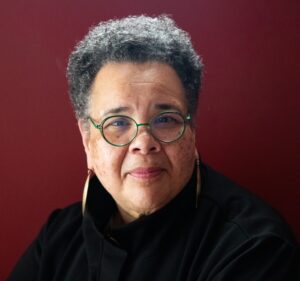
Sharing the Gold
(An audio recording of this blog may be found here.)
With people all around the globe, my attention was captured by the Paris 2024 Olympics. I tuned into the TV coverage as often as I could. Watching world class athletes perform their craft is spellbinding. Athletes performing at the highest level, pushing toward new world records and new personal best records—rising to the challenge of being the greatest—all fighting to be number one. Winning the gold! It is riveting.
Track and field is one of my favorites, and this year the Olympics delivered high drama. American high-jumper Shelby McEwen along with New Zealand’s Hamish Kerr both cleared 2.36m. In these kinds of moments, the rules of the game allow for a tie. If agreed upon by the athletes, both are awarded the gold medal. If the opponents do not agree to call it a tie, the competition continues until there is a definitive winner—a gold medalist and a silver medalist. The moment was tense. The officials consulted with the athletes. Rather than preferring the tie, Shelby McEwen opted for a jump-off with Kerr. Shelby preferred to continue the competition in lieu of sharing the gold medal.
In the end, Kerr of New Zealand took the higher jump to clinch gold, following eleven straight misses from the two finalists. It was a devastating outcome for McEwen, who was left with silver. McEwen went home having clenched second place.
For me, McEwen’s decision was one of life’s ironies. When I heard that McEwen opted out of the shared gold medal and wanted the competition to continue, I thought YESSSS! & NOOOO! at the same time …
Yeah! That’s right. Don’t settle for second best! You got this! Fight on! There’s no “sharing” on the Olympic podium! Get your medal! Buckle down, concentrate, and win! You’ve trained long and hard for this moment!
NOOOO! What are you doing? Take the gold medal! Gold is what you have been training for. It’s what you have been competing for. You earned it! Take it! Share it! There’s no shame in sharing victory! No need to continue the fight! You won … well you and the other guy won, but that’s good enough!
I can understand McEwen’s decision, and while I respect his decision, it troubles me. My fear is that we have been taught that a shared victory is a lesser victory, a suspicious victory, a sullied victory.
Opting out of sharing a gold medal, and then losing the gold for silver, is not a story we are used to hearing, or the story we like to tell. The silver medal is not “really” a win, and we like winners. If this had been an old Hollywood movie, McEwen, in the final, dramatic round would have taken the gold. The old Hollywood story of winning rather than sharing must be interrogated, contested, reconsidered and rewritten.
Doctoral students and faculty are not athletes. But the arena of the academy is highly competitive. We are in rarified environments where, in many instances, competition is prized over cooperation. Our competition includes making arguments, defending arguments, critiquing arguments and doing our utmost at winning arguments. We are trained to compete against one another for awards, jobs, grants, and book contracts. And now, with social media, we compete for TV appearances, influencer status and royalty checks. The academic competition is not fist-to-cuffs, but it can be as abrasive as any athletic bout. Many colleagues are drawn into the academic arena because of their warrior spirit and battle skills. Others had to adapt and hone for the fight. Others, unprepared and unable, have just been beat up. Those in the academy know a fight. Given the lesson of McEwen, can we learn when to share the win?
I have no disdain for the competitive spirit. I enjoy friendly competition, especially if the winner buys the beer after the game. What I disdain is the way winning at all costs eclipses the love for what we do. Our passions are more focused on winning than on the practice and art of achieving, creating, and building. Honing collaborative efforts for stronger communities, networks and relationships is more needed than fighting for the individualized win. It is not enough to train scholars to compete. Learning the skills and challenges of partnerships, collaborations, coalition building, and the sharing of wins is the way we create the path into our own future. My fear is that in our unrelenting competitiveness we lose out on or squelch the most brilliant minds or miss out on the far-reaching achievements which only occur in collaboration.
As we reshape our educational ecologies, the question of teaching for and with collaboration is a critical question. In your scholarship, do you expect to win while others lose? Do you aspire to be the one-and-only, the star, while seeing little value in partnerships, collaborations and shared accomplishments? Do you pit your doctoral students one against the other for scholarships, grades, and your time and attention? Do you reward faculty colleagues who “win” in their fields with higher salaries and additional goodies while other colleagues are invisibled or ignored? Are your course learning activities and assignments geared to teach competition or collaboration? What will it take to shift our faculty cultures to environs that support and celebrate sharing and the variety of contributions?
Leave a Reply